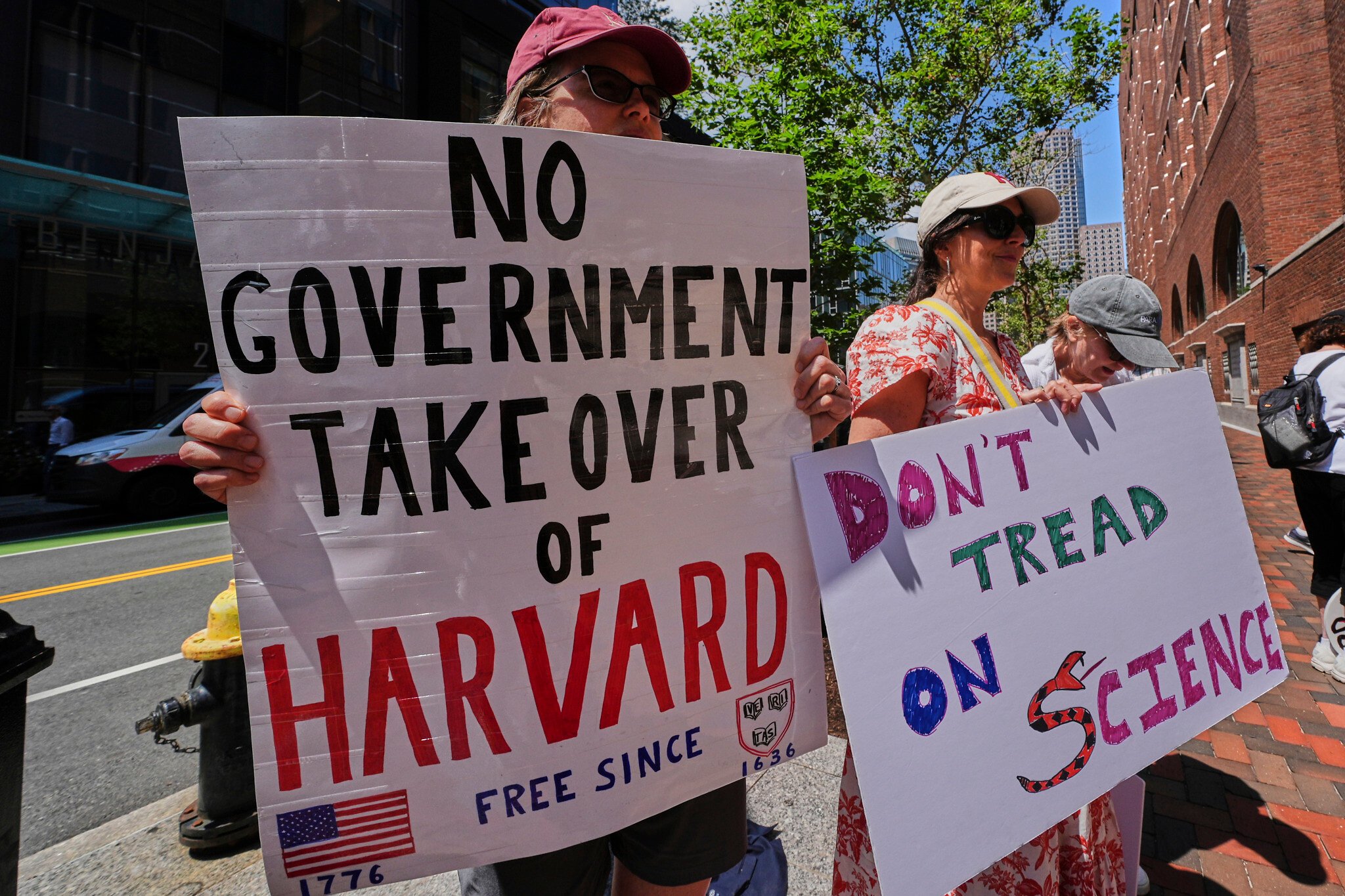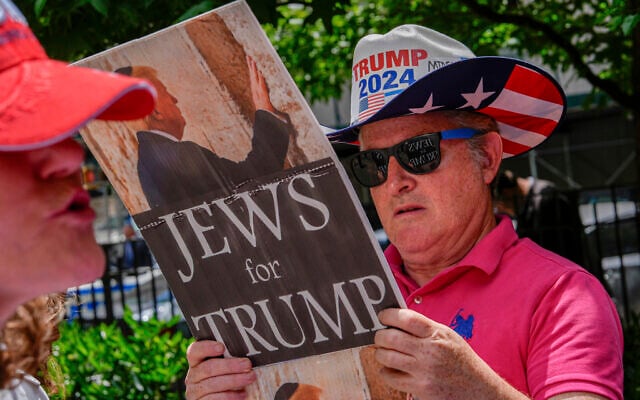


Most Jewish Americans oppose the Trump administration’s efforts to deny federal funding to universities over alleged antisemitism on campus, even though they are personally concerned about rising hostility to Jews, a poll released on Thursday found.
Though significant majorities of Jews across denominations said they are “somewhat or very concerned” about antisemitism at universities, most of them oppose withdrawing research funding as a response to it.
Moreover, a large majority of American Jews say that Trump uses the issue “as an excuse” to go after the schools, with less than a third responding that “Trump truly cares.” The division falls almost cleanly along the lines of how respondents voted in the 2024 election.
Since returning to office in January, US President Donald Trump has threatened universities with federal funding cuts, citing both anti-Israel protests that erupted in the wake of Hamas’s October 7, 2023, attack and the subsequent war in Gaza, and climate initiatives, transgender policies and diversity, equity and inclusion programs.
Rights advocates have raised concerns over free speech, due process and academic freedom.
Mainstream Jewish organizations, too, have taken issue with some of the government’s moves, while at the same time raising the alarm about a hostile environment created by the protests, which frequently included expressions of support for Hamas and other terror groups and sometimes involved tactics such as break-ins, building occupations, and vandalism.
According to the poll, American Jews across denominations are personally concerned about antisemitism on college campuses, with 72% of respondents saying they were “somewhat or very concerned” about the phenomenon.
The level of concern was highest among Conservative and Orthodox Jews, who for the purposes of the poll were combined, with 87% of that group saying they were concerned. Among Reform Jews, 76% expressed concern. Among non-affiliated Jews, 58% did.
Despite the concern, however, the policy of withdrawing research funding “when there is evidence of antisemitism” does not have majority support, with roughly 50% of Jews across age groups saying they disagree with the tactic.
Among Jews 40 and younger, only 25% agree with the withdrawal of funding, while 31% of Jews 40-65 and 32% of Jews 66 and older do. The remainder said they neither agree nor disagree with it.
The results were similar when respondents were asked specifically whether they agree with the Trump administration’s decision to pull $400 million in funding to Harvard and UCLA.
Among Orthodox and Conservative Jews, a plurality (47%) agree with the decision, while 42% oppose it, and the rest say they neither agree nor oppose it. Among Reform and non-affiliated Jews, the results were starker, with 29% of Reform Jews agreeing and 63% disagreeing, and 21% of non-affiliated Jews agree while 66% disagree.
The figures seem to reflect whom respondents trust: According to the poll, 76% of American Jews trust college professors to do what is right, and 89% trust medical researchers and scientists to do the same.
Only half of respondents, by contrast, said they trust the news media, and less than a third (28%) trust members of the US Congress. Only 24% said they trust senior officials in the Trump administration.
Though the entire breakdown of results was not immediately available, data shared by the pollsters — from the University of Rochester, the University of California, and Ipsos — showed that respondents’ trust in the president is very closely correlated with whether or not they voted for him, and may fall straightforwardly along political party lines.
Of those who voted for Trump, 91% said he truly cares about antisemitism on campus, while only 9% said he uses it as an excuse. Among Jews who voted for his opponent, Kamala Harris, 95% said it’s only an excuse, and only 5% said the president truly cares.
Among Jews who did not vote in 2024, 70% said it’s an excuse, and 30% said he truly cares.
The pollsters also asked respondents whether they approve of Israel’s military campaign against Hamas in Gaza over the past two years, in whose shadow the protests, and the backlash to them, erupted.
Of Conservative and Orthodox Jews, 46% said they approve of the campaign, while 38% disapprove, and the remainder neither approve nor disapprove.
Of Reform Jews, only 32% approve, while 58% disapprove, and 10% neither approve nor disapprove. Of non-affiliated Jews, just 20% approve, 57% disapprove, and the rest neither approve nor disapprove.
Overall, 31% approve, 53% disapprove, and 16% neither approve nor disapprove.
The survey was conducted between August 28 and September 8, 2025, among “1,166 adults who are Jewish by religion, or who had no religion but considered themselves Jewish.”
Respondents were weighted to adjust for gender, age, race/ethnicity, education, and their census region, using demographics from the Pew 2020 Jewish Study. The margin of error was ±4.3%.




